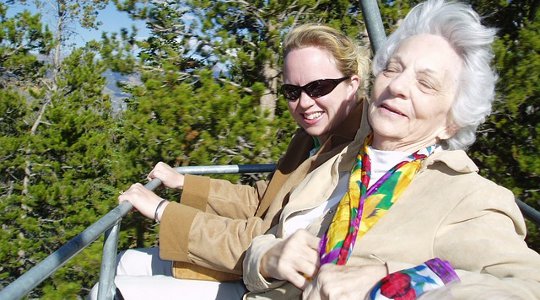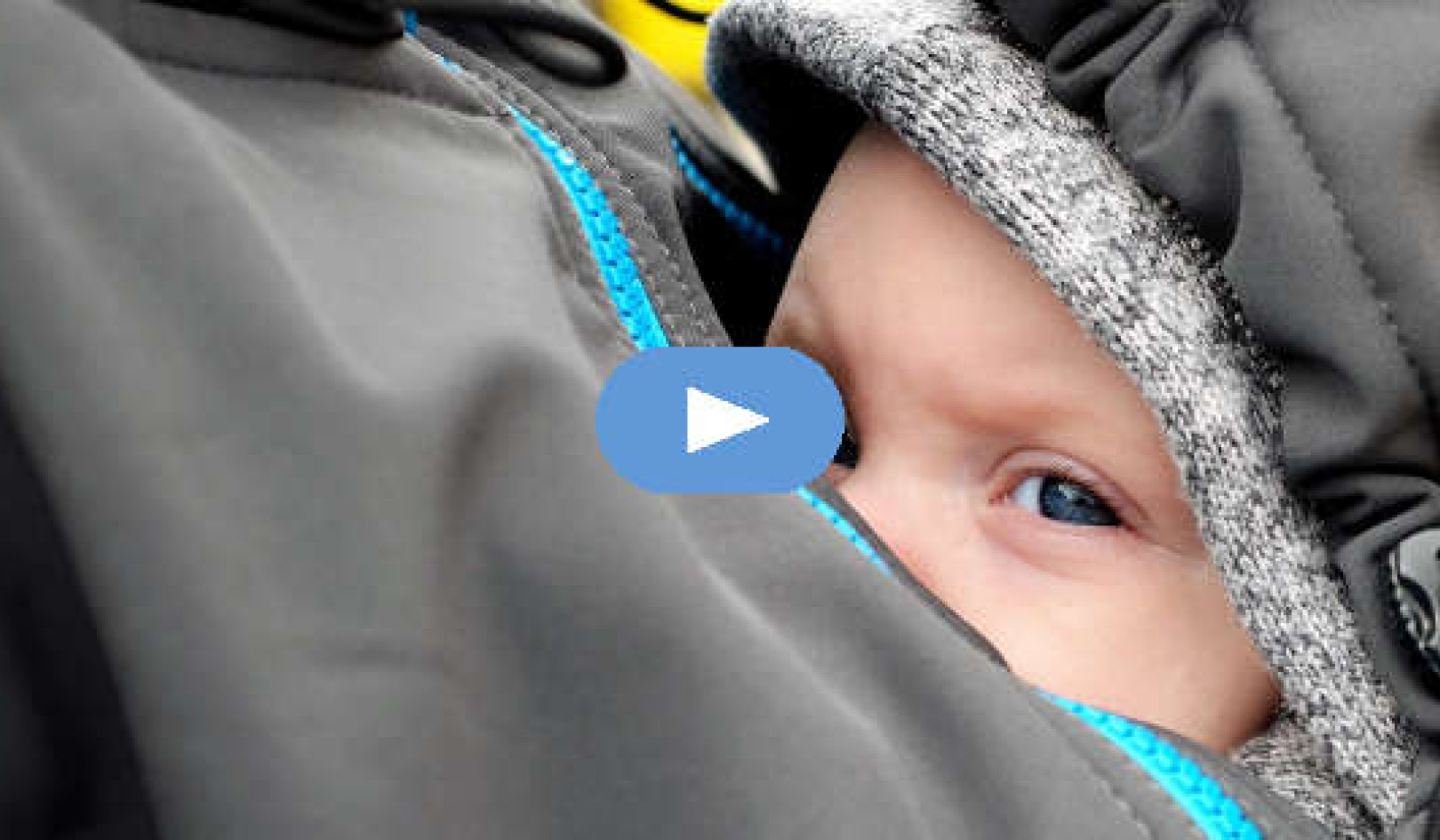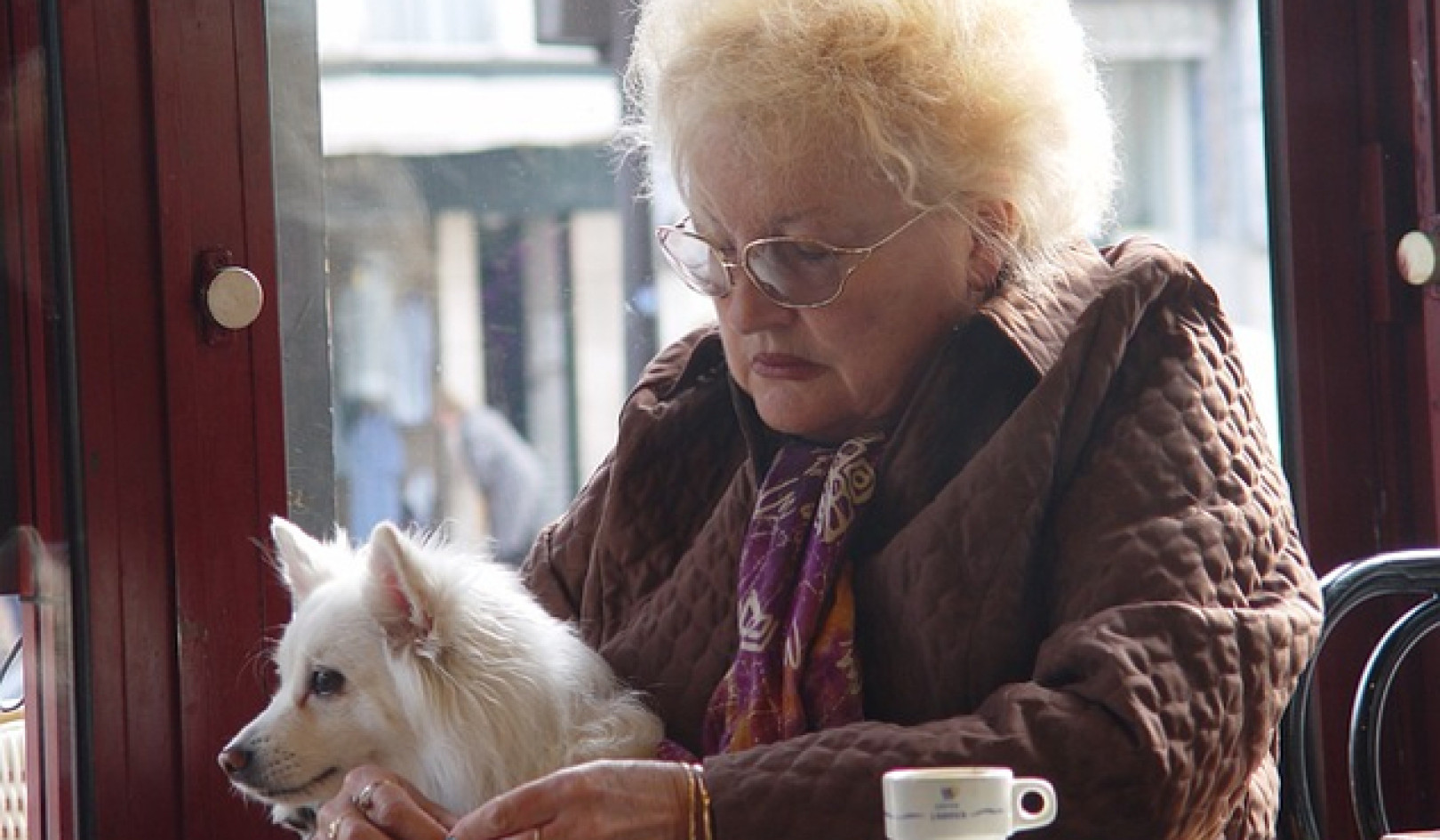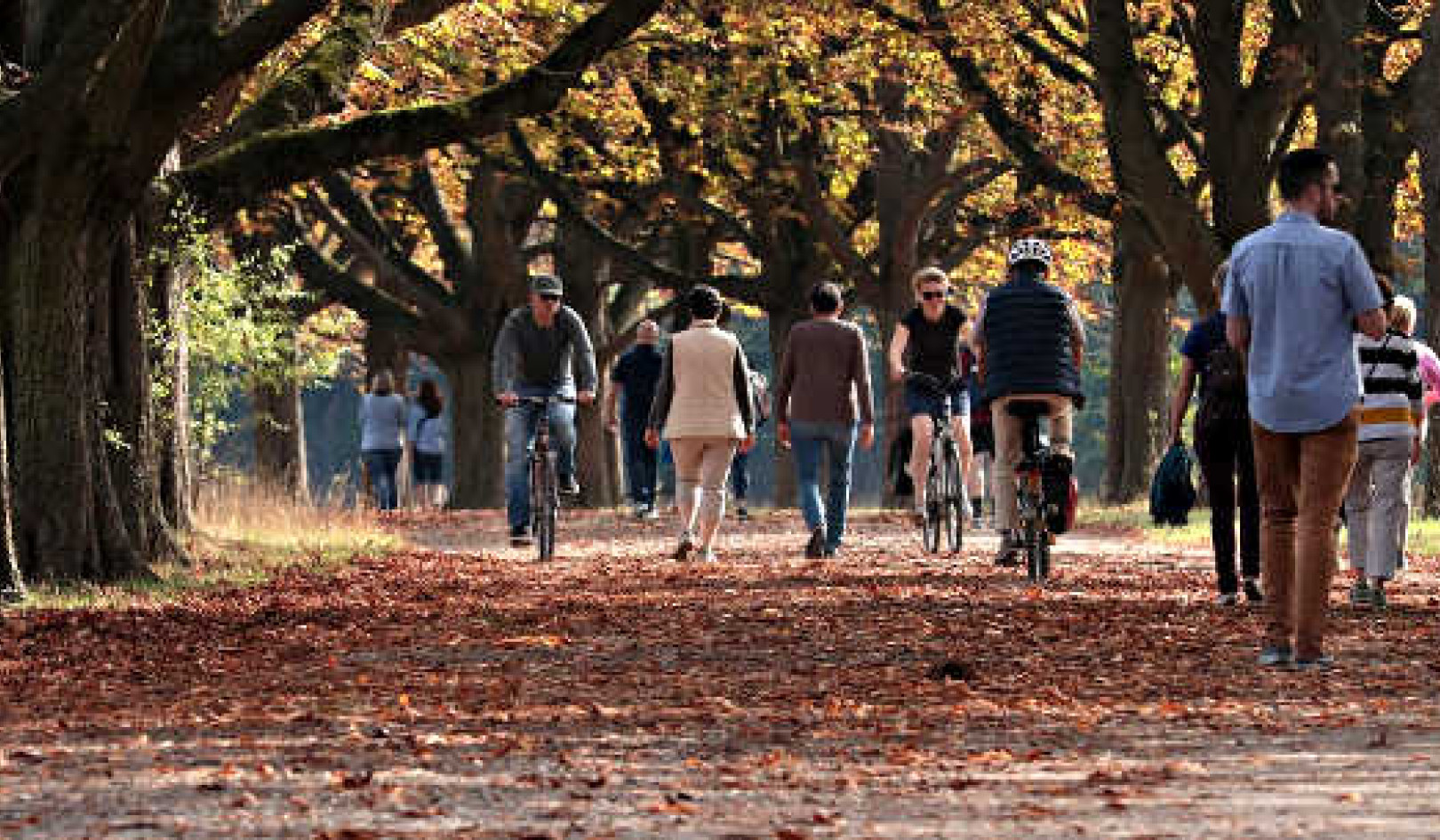
The next years will be an interesting time for our society. When a growing percentage of the population lives past one hundred, we will see what happens to the psychological and spiritual direction of our culture. As we move into the future, we will be redefining aging. After we battle the cultural attitudes that try to define us and attempt to stall us out, we will be staying involved in life in any way we can—volunteering, working, growing, creating, discovering, and enjoying our lives.
There is no set chronological point at which old age begins. The first step toward successful aging begins with a realistic assessment of our current life situation and the challenges of the future. If we do not choose our activities and attitudes with clear judgment coming from a courageous and realistic assessment of our lives and circumstances, we fall into choosing unconsciously and poorly, and we will pay a hard price.
FEELING NEW AGAIN
When a woman conceives her true self, a miracle occurs
and life around her begins again. —MARIANNE WILLIAMSON
In On My Own at 107, Sarah L. Delany reports, “Just when it seemed winter might never end, I ventured outdoors and was greeted by a wondrous sight: Bessie’s crocus plants were peeking through the snow.” Sarah’s sister Bessie had planted the crocuses years before her death, when she was already more than one hundred years old.
If you’re going to embrace the concept of feeling new each day, perhaps the symbolism of a crocus “peeking through the snow” will inspire you as it did me. Crocuses start out as wrinkled little turd-like orbs. They sleep frozen in the earth for months of cold weather, yet have the audacity to live through it and timidly peek through the ground to display their fragile flowers once again!
So you may be feeling a bit like a turd. Go for a walk, and notice something beautiful along the way. Get your hair done, and ask the hairdresser to massage your neck. Get yourself a touring bike, and go for a ride. Notice the trees budding in spring, help out at a children’s home. Try a yoga class for mature women. Look for ways to feel new again.
What can you do to change your outlook on life and feel new again?
DOORS AND WINDOWS
I’ve heard that when one door closes, another opens. Joan Rivers once said, “If I can’t make it through one door, I’ll go through another door—or I’ll make a door. Something terrific will come no matter how dark the present.” Joseph Campbell said that when you “follow your bliss,” doors you never knew were there will open to you.
Every life event is a door to discovering more about ourselves. No matter what our age, we need to look for these doors because they are waiting for us to find them. Today is the beginning of the rest of your life, and it’s a good time to ask how many doors are still left for you to open—and which windows need cleaning. Windows and doors have opened and shut, gotten stuck, and at times, the key to unlocking them has been lost altogether.
You are more than your crow’s-feet, and you are more than the wrinkles on your eyelids. Doors will continue to swing open when you keep a positive outlook, when you follow your passions.
Begin to make plans for the rest of your life—one window, one door at a time. Make an effort to discover which doors are still open to you, which ones will need to be locked shut, what kind of windows you want to look through, and which offer you a better view toward the rest of your life.
In your journal, write about which metaphorical doors you’d like to close, which ones you’d like to open, and which windows need cleaning.
A SUPPORT FOR THE YOUNG
Author Marianne Williamson wrote, “In our sixties and seventies, we could, in addition to shining, start teaching others, those coming up after us, how to do what we have done.” Give it some thought. Is there an organization in your town that could use a volunteer to mentor someone younger? Is there someone in your family, or your friends’ families, who would benefit by your spending a little extra time listening to them? What about your own children and grandchildren? Are you a support and a soft place for them to be vulnerable and not judged?
I like the idea of being the place someone can come to lean against for a while, that my “old woman’s knee” could be a support for a wounded soul—that who I am could provide a soft place to fall for a younger person.
I know that when my day includes a moment or two of helping or inspiring someone younger, I feel purposeful and more alive—as if some of their youngness has rubbed off on me.
In what way can you be supportive to someone younger?
LEAVING A LEGACY
If I do have a fantasy, it’s in the role of young people
coming to me and my being able to share with them
some of the wisdom I’ve gained. —JANE GOODALL
We older women have a particular hard-won wisdom that we’ve gleaned through consciously processing the experiences of our lives. What are we going to do with this wisdom? Play canasta on Tuesdays, bingo on Wednesdays? We have an opportunity, and a responsibility on some level, to be mentors for the younger generation.
Mentors shouldn’t impose doctrines and values on the people they mentor in an attempt to clone themselves. Instead, they foster others’ individuality, applauding them as they struggle to clarify their own values and discover their authentic life paths. We bless them in the heroic, worthwhile, and difficult task of becoming more than they would have become alone. We encourage them by saying, “So what if you made a mistake? You can start again.”
In the pursuit of leaving a lasting legacy, cultivate the art of attentive listening, carefully portioning out comments and thoughtful questions. Real communication occurs when you’ve taken the time to tune in to the other.
In this exchange, communication is a two-way process from which both parties benefit. You will find the younger person’s vitality will rejuvenate and invigorate you as you share in her energy and fresh ideas. Meanwhile, the younger person receives perspective and a readiness to bridge the past and future.
The legacy you leave can also be as simple as passing on your story or your treasures. Martha McPhee wrote an essay titled “Blue Bowl of History,” in which she recalls her grandmother: “She was determined that I know her stories, as if by learning them I’d carry her legacy forward, assuring her a certain immortality.”
The happiest older women are those who readily give of themselves to younger generations. We all have unique gifts to share and pass on.
Before you can capitalize on your uniqueness, though, you must have a good idea of what it is that makes you different. In what ways are you unique? Take skills, and write about them in your journal. Where will you look to find someone to mentor?
FOR FUTURE GENERATIONS
Never doubt that a small group of thoughtful,
committed citizens can change the world. Indeed,
it is the only thing that ever has. — MARGARET MEAD
What do we want to leave to future generations of women? In this moment, we are helping to shape the future of aging for every generation of women that follows after us.
We will show them that age can be free and joyous, that it’s possible to live with pain and loss, that it’s important to say what we really think and feel. We will show them that we know who we are, that we know more than we ever thought we would, that we’re not afraid of what people think of us as we move with wonder into an unknown future.
Generativity is an adult’s concern for and commitment to the wellbeing of future generations. It’s the impulse to become more productive and to do more worthwhile things with their lives. We have opportunities to be generative in many different ways—as parents and grandparents, teachers or their assistants, mentors, leaders, friends, neighbors, and volunteers.
Giving birth to a child is perhaps the most fundamental form of generativity. But people can metaphorically give birth to many things—from starting a business, to writing a poem, to painting a work of art, to coming up with a new solution to an old problem. Generativity is also about caring for the next generation. The task is to accept that we won’t live forever and to seek to leave behind a positive legacy for the future.
Travelers on this road develop the virtue of caring, which paves the way to a rewarding second half of life. This valuable quality focuses on concern for others beyond the immediate family. It demonstrates practical concern for the younger generations and the quality of both social and environmental conditions that we are passing on to them. Caring can also be expressed through the development of thoughtful products, careful systems, quality literature, insightful art, concern for the planet’s well-being, and more.
The choice to practice healthy caring expands our essential nature. We learn to accept ourselves with honesty, patience, and warmth. We fall in love with the beautiful child we once were. We enlarge the boundaries of our heart. “Carve your name on hearts, not tombstones. A legacy is etched into the minds of others and the stories they share about you,” wrote Shannon L. Alder.
The good news is that we are given many opportunities to choose the road called generativity. It doesn’t necessarily look peaceful or calm because change and growth can be disruptive. This road beckons us to be newly open to places, people, ideas, growth, beauty, dreams, hopes, giving, and rewards. When we are living according to this path in a way that is congruent with our inner core, we have chosen the route that will make all the difference in our own lives as well as in those around us.
MY WISH FOR YOU IS...
I once read an African proverb that said, “The world was not left to us by our parents. It was lent to us by our children.” What survives you and me are the world’s children. I imagine them awaiting our wisdom. They are innocent and dependent on our ability to share what we have learned. The future looks to each of us with hope.
In your journal, write a letter that begins with “Dear future generations of women: My wish for you is . . .”
©2005, 2014 by Pamela D. Blair. All Rights Reserved.
This excerpt was reprinted with permission of the publisher,
Hampton Roads Publishing. www.redwheelweiser.com
Article Source
 Getting Older Better: The Best Advice Ever on Money, Health, Creativity, Sex, Work, Retirement, and More
Getting Older Better: The Best Advice Ever on Money, Health, Creativity, Sex, Work, Retirement, and More
by Pamela D. Blair, PhD.
Click here for more info and/or to order this book on Amazon.
About the Author
 Pamela D. Blair, PhD, is a holistic psychotherapist, spiritual counselor, and personal coach with a private practice. She has written for numerous magazines, appeared on radio and television talk shows, and co-authored a bestselling book on grief entitled I Wasn't Ready to Say Goodbye. She is also the author of The Next Fifty Years: A Guide for Women at Midlife and Beyond. As a therapist, she is known for her holistic approach and her innovative personal growth workshops. She lives in Shelburne, VT. Visit her online at www.pamblair.com.
Pamela D. Blair, PhD, is a holistic psychotherapist, spiritual counselor, and personal coach with a private practice. She has written for numerous magazines, appeared on radio and television talk shows, and co-authored a bestselling book on grief entitled I Wasn't Ready to Say Goodbye. She is also the author of The Next Fifty Years: A Guide for Women at Midlife and Beyond. As a therapist, she is known for her holistic approach and her innovative personal growth workshops. She lives in Shelburne, VT. Visit her online at www.pamblair.com.
Watch an interview: Author Pamela Blair and "Getting Older Better"



























